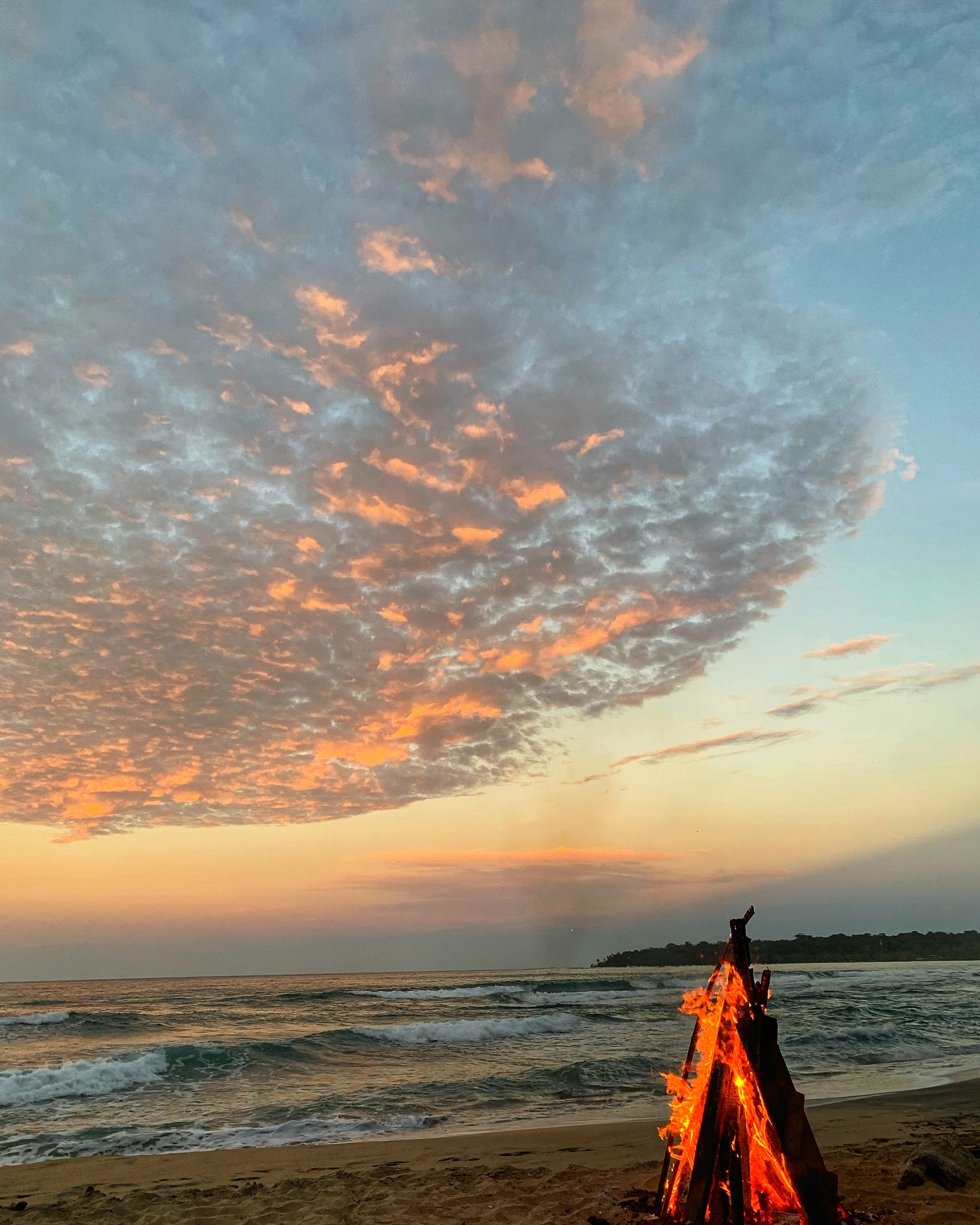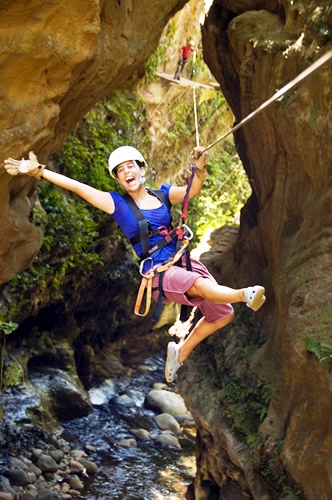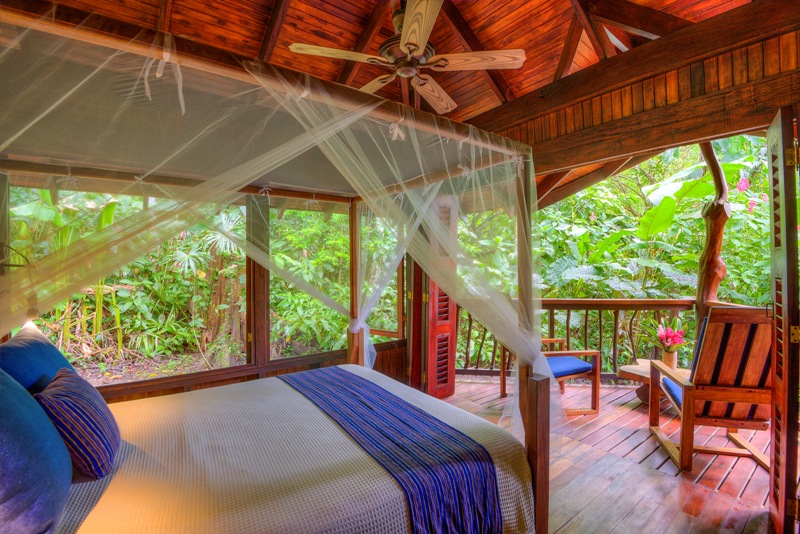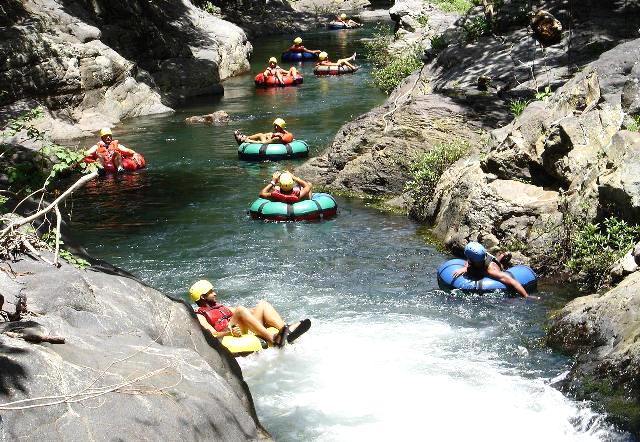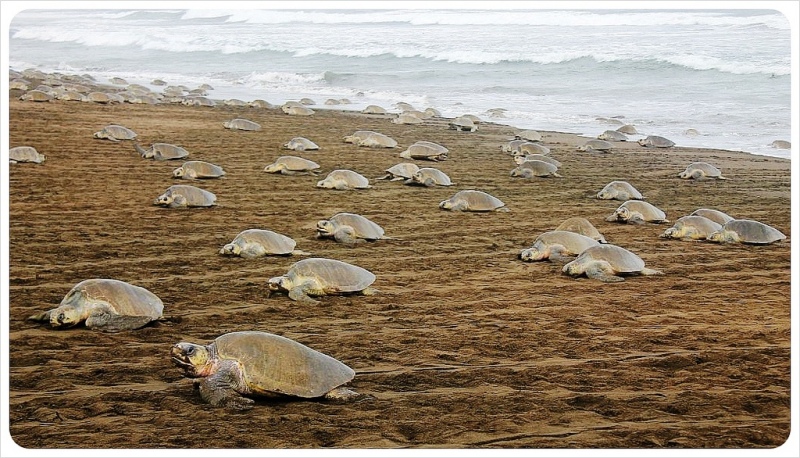
They arrive literally in waves, slowly hauling their heavy bodies out of the ocean and up the beach. They wait for the high tide at night, using the high surf to propel them farther up the sand, and the protection of darkness against predators to dig their nests and lay their eggs. Thousands upon thousands, they keep coming.
If you’ve never seen it, the amazing phenomenon of massive arrivals of hundreds of thousands of sea turtles coming ashore all at once to lay their eggs on Costa Rica’s beaches is one of the world’s most spectacular nature events.
Olive Ridley sea turtles (Lepidochelys olivacea) are world famous for their arribadas (meaning “arrivals” in Spanish) at Ostional National Wildlife Refuge in Costa Rica. Founded in 1984, this protected beach on the Nicoya Peninsula in Costa Rica is the second largest nesting site in the world for Olive Ridley sea turtles, along with Leatherback and Pacific Green sea turtles.
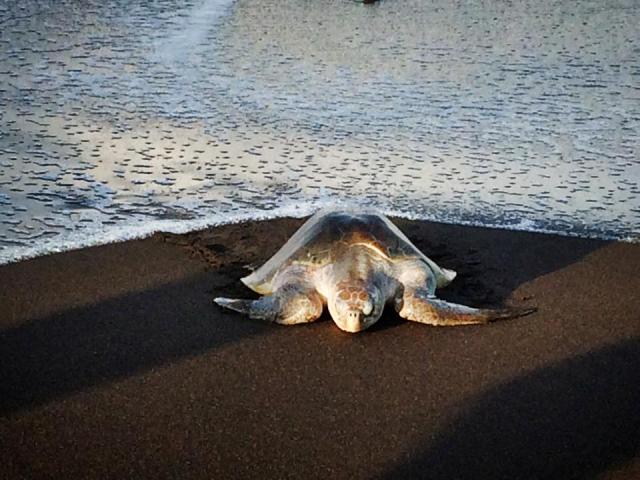
While sea turtles nest at Ostional Beach on the Pacific Coast at least once a month all year long, the mass arrivals happen from mid-June to December. Usually toward the end of the moon cycle, when there is no moon, the turtles start arriving. In the days and weeks leading up to an “arribada,” the turtles will have gathered just offshore waiting for the moment when it’s time to go on land.
Sea turtles are normally shy and easily disturbed when nesting, hence the requirement during tours to wear dark clothing and not use flashlights or camera flashes. But during an “arribada”, the turtles are nearly oblivious to any disturbance and keep coming ashore long after day has dawned. “Bumping into each other, crawling over each other, they are automatons on their way to fulfill a predetermined task: lay their eggs at all cost,” states Costa Rica National Park Service information.
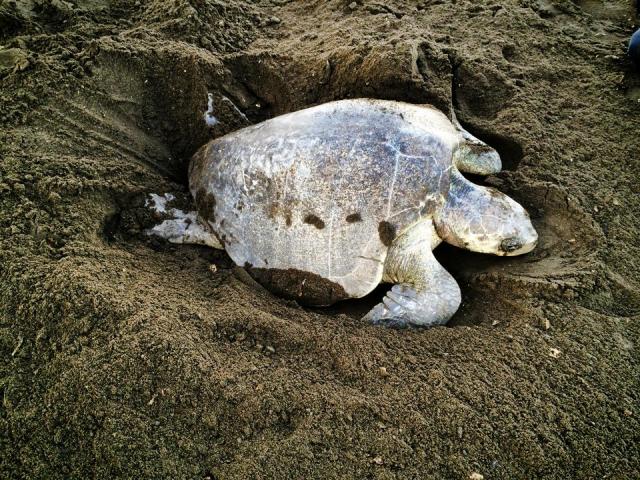
The non-stop stream of determined female sea turtles lasts a few days up to a week. The largest “arribada” recorded so far in Ostional happened in November 1995, when close to 500,000 turtles arrived at one time.
Female Olive Ridley sea turtles will nest between four and six times a year, depositing between 80 and 100 white soft-shelled eggs in the sand each time. They cover their shallow nests and return to the ocean, leaving their offspring to their own fate. Although more than 10 million eggs are laid during each season, only a fraction of these will hatch 60 days later; and even fewer baby turtles will make it to the ocean and survive – a reminder of how important it is to protect these endangered turtles.
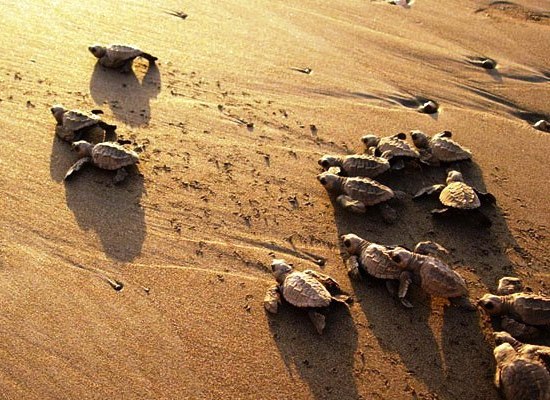
The curious exception at Ostional National Wildlife Refuge
In Costa Rica, it is illegal for people to take sea turtle eggs from the beaches, or to poach or hunt the female sea turtles. Most national parks and nesting beaches in Costa Rica are protected by national park service guards and community volunteers to prevent these thefts.
The Ostional National Wildlife Refuge is the one exception. For the first two days of an “arribada”, the Ostional community has permission to take turtle eggs for their own consumption. The reasoning is that these eggs would get trampled and destroyed as thousands more turtles come ashore to nest in subsequent waves, so park officials let the community practice the old tradition of gathering turtle eggs to eat.
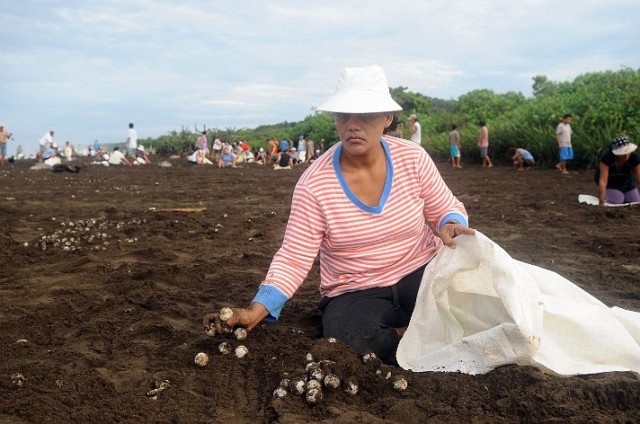
“So many turtles come onto the beach in a short time span that most of the first nests are destroyed by later turtles. Therefore, in 1987, a project was initiated to allow local people the right to collect and sell a percentage of the eggs from the first two days of each arribada. This is the only place in the world where it is legal to harvest turtle eggs. This practice is designed prevent poaching and to help the local community,” Costa Rica National Park Service information states.
After those first two days, national park service guards and community volunteers then dedicate hours both night and day to clean the beach from driftwood and guard the turtles and their nests. When the baby sea turtles hatch and speed toward the sea, community volunteers protect them from dogs and vultures.
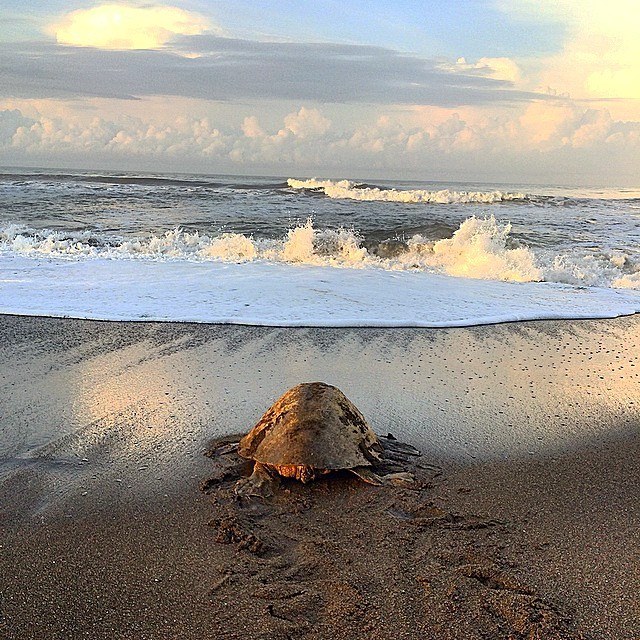
See the turtles at Ostional National Wildlife Refuge
You can visit Ostional National Wildlife Refuge in Costa Rica to see this amazing sea turtle event when you stay at L’acqua Viva Resort & Spa in Playa Guiones by Nosara. The Nosara hotel is located a short drive from Ostional, and arranges naturalist guided tours to see the turtles.
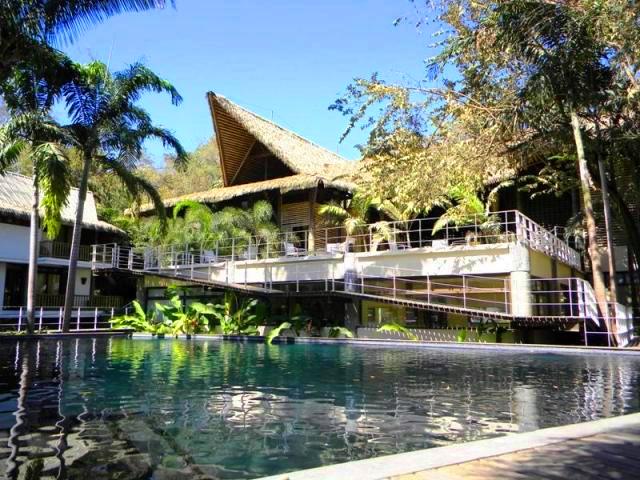
Article by Shannon Farley









